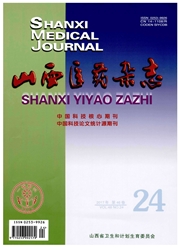

 中文摘要:
中文摘要:
目的 观察狗骨髓基质细胞(MSCs)的生长特点及诱导条件下的成骨能力,为利用狗的MSCs进行成骨研究提供实验基础。方法 从成年狗胫骨取骨髓进行MSCs培养,检测细胞周期;应用四甲基偶氮唑蓝(MTT)比色法观察细胞增殖;测定碱性磷酸酶活性;用Von Kossa染色法观察钙化结节。观察在条件培养液中MSCs生长及成骨分化情况。结果 MSCs增殖能力强,细胞周期显示有20%的细胞处于G0/G1期。诱导条件下的细胞碱性磷酸酶活性明显增高,10~12d达到高峰,并出现钙化结节。结论 体外培养狗的MSCs具有分化成骨的潜能,增殖能力强,可作为骨组织工程的种子细胞。
 英文摘要:
英文摘要:
Objective To investigate the growth and osteogenic potentiality of cultured dog marrow stromal cells (MSCs) to provide an experimental basis for their further research. Methods MSCs were obtained from bone marrow and purified by adhering to the culture plastic. The adhesive cells were preserved to passage culture. MSCs were curtivated in a conditional medium in subculture including dexamethasone, vitamin C, and β-glucerophosphate. The ceil cycle was analysed by measuring DNA cotent with FAC-Scan flow cytometer. The proliferation was observed by MTT. The ALPase activity was detected respectively through PNPP. Von Kossa staining was used for the mineral nodule investigation. Results MSCs had strong capability of proliferation. The cell cycle analysis showed that 20% of MSCs were at G0/G1 phase. The mineral nodules were observed under osteogenic condition. ALPase activity increased significantly, and reached to a peak value on days 10 to 12. Conclusion The MSCs cultured in vitro have a strong activity of proliferation and osteogenic potentiality. Dog MSCs can be used as seed cells in bone tissue engineering.
 同期刊论文项目
同期刊论文项目
 同项目期刊论文
同项目期刊论文
 期刊信息
期刊信息
